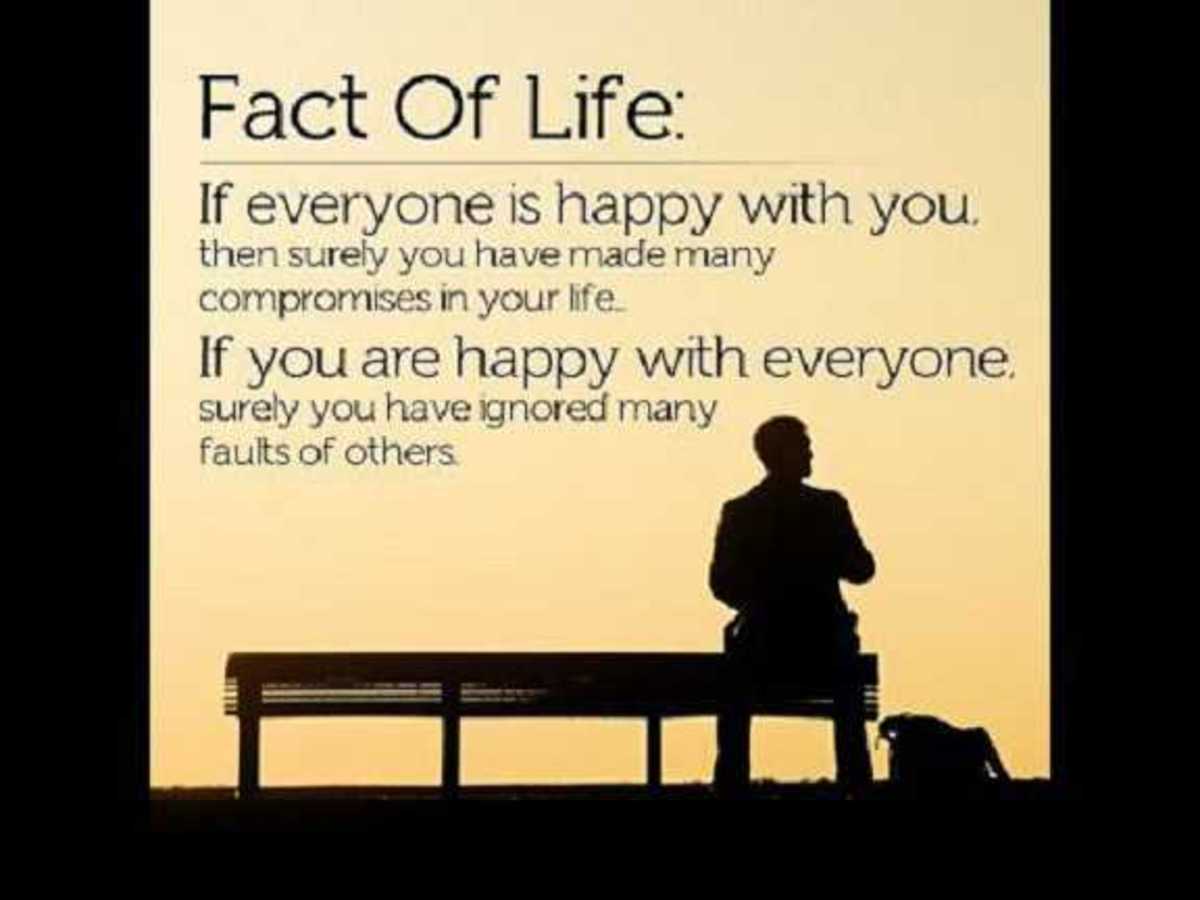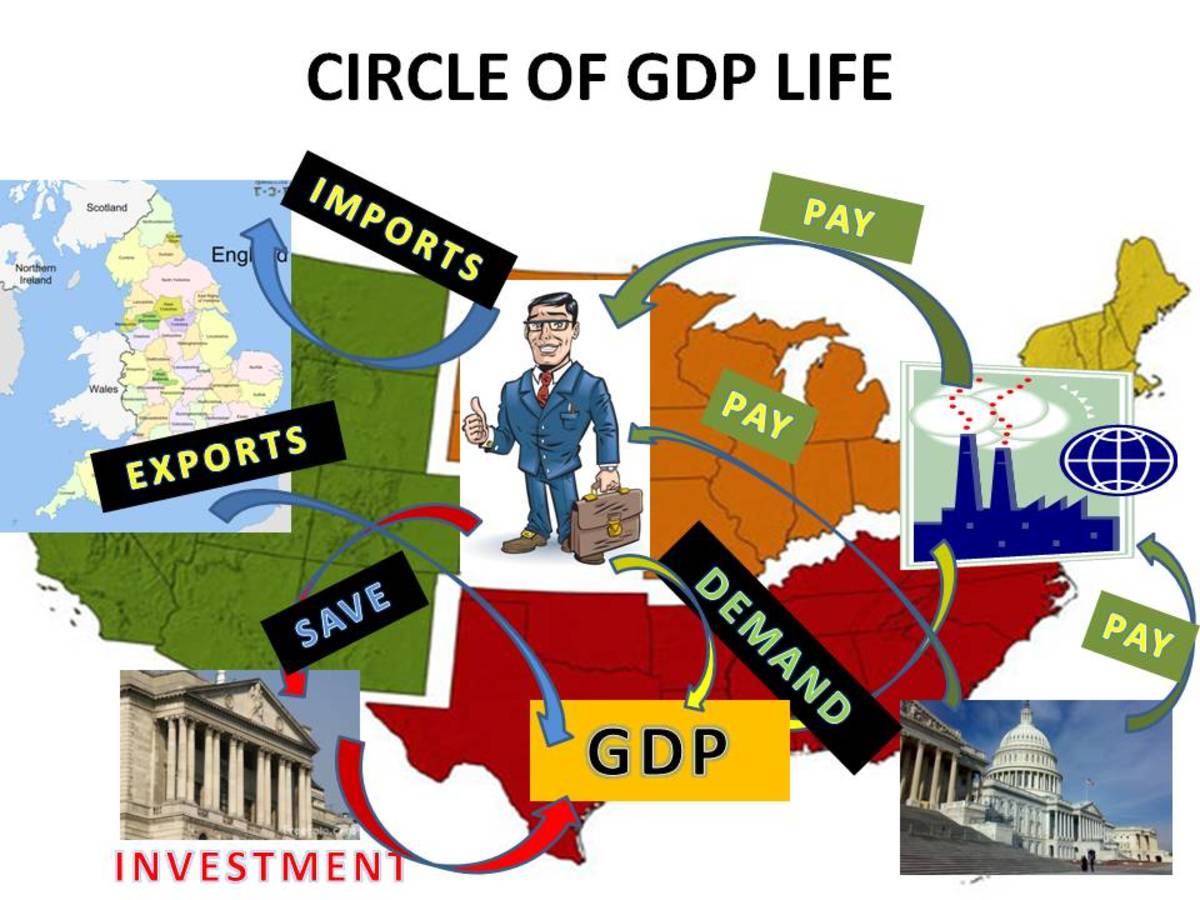How Can We Be Happy?
There are two ways of looking at this question.
One is rhetorical and echoes the familiar sentiment that with all the pervading gloom and very little feel good, where is the scope for us to be happy?
The other way is to look at the question as exploratory and hopeful – to find the silver lining and discover ways to be happy even in difficult times. Which, incidentally, is what I have in mind.

The reasons for gloom
The reasons for gloom will vary from person to person but in general there are enough and more problems to make a normal person unhappy.
Most of us have some personal problem or the other - be it a relationship gone sour or a financial stringency, a tough boss or a challenging medical condition or one of the myriad other problems that life presents us. And then, there are the general external problems. The economic downturn was undoubtedly one of the biggest causes of concern, and with reports saying that China will see a more modest growth resulting in slow global recovery, there is enough to worry and be unhappy about. Of course we also have the energy crisis, global warming, and the various epidemics that kill millions.
But looked at another way, the very reasons for gloom can be the reasons for us to set out in search of happiness. Because there are so many dark clouds, it is all the more necessary that we search for that elusive silver lining of hope and bring in some happiness into our lives.

What is happiness?
We have all experienced happiness at some time or the other so there is really no point in going to the dictionary for a definition. But to avoid any confusion, we can probably say that it is a state of mental well-being. The why and how of it is a complicated matter.
Most people look at it from their own perspective and therefore happiness comes in different flavors. Naturally, there are different recipes.
Take a look at the quotes below to get a sense of the wide range of views.
Happiness is as a butterfly which, when pursued, is always beyond our grasp, but which if you will sit down quietly, may alight upon you.
— Nathaniel HawthorneUnhappiness is best defined as the difference between our talents and our expectations.
— Edward de BonoThe basic thing is that everyone wants happiness, no one wants suffering. And happiness mainly comes from our own attitude, rather than from external factors. If your own mental attitude is correct, even if you remain in a hostile atmosphere, you feel happy.
— Tenzin Gyatso, 14th Dalai LamaA table, a chair, a bowl of fruit and a violin; what else does a man need to be happy?
— Albert EinsteinMost people are about as happy as they make up their minds to be.
— Abraham LincolnEach morning when I open my eyes I say to myself: I, not events, have the power to make me happy or unhappy today. I can choose which it shall be. Yesterday is dead, tomorrow hasn't arrived yet. I have just one day, today, and I'm going to be happy in it.
— Groucho MarxEven a happy life cannot be without a measure of darkness, and the word happy would lose its meaning if it were not balanced by sadness. It is far better take things as they come along with patience and equanimity.
— Carl JungThe path to happiness
As there are many views about happiness and what it takes to reach that state, there are as many paths prescribed by successful practitioners and academics.
Let me clarify that I do not at all claim to have reached anywhere near that perfect state of bliss. Far from it, I live a perfectly normal life and get tossed around with my share of ups and downs.
But from what I have read and the lessons that I have learned from life, I would think that a few things help:
· Listen to the old adages. I always remember what I learnt in school that “Happiness lies not in getting what you like, but in liking what you get.” While this may seem a growth inhibitor in a modern society that relies on aspirations to drive economic growth, we may also have to realize that unrealistic and unfulfilled aspirations generate a lot of unhappiness and the economic cost of all this negativity in terms of healthcare costs and lowered productivity cannot be overlooked. Adopt a more realistic stance and life becomes a lot simpler - and happier.
· Remember that we can control ourselves; we cannot control the world outside. So trying to identify all that is wrong with the world that causes all my unhappiness is a futile pursuit. If we want to live a happier life, it would help if we look at our own behavior and see how much of it contributes to our happiness and how much contributes to our misery. Any such exercise can be a shocking experience at first. But it helps a lot to know – for we can increase the behavior that contributes to well being and soon you will discover that the dysfunctional behavior gets crowded out. Happiness and unhappiness are often the result of habits.
· Take responsibility for the pain and unhappiness. Unhappiness should not be confused with any external event person or object. Unhappiness is really our internal response to an external stimulus from an event, person or object. Once we look at it like this we start taking responsibility for our unhappiness and start learning to generate happiness instead of happiness. If we do not do this, we will spend a lifetime waiting for the world outside to rectify itself, which of course will not take place.
· Get rid of the baggage. All of us have a bag of perceived hurts, and hostility tucked away inside. People we are waiting to teach a lesson or settle scores with. We need to cleanse ourselves of all this so that we reduce the unhappiness generated by us. If it does not go away so easily, you may need to forgive those people so that you can forget and leave them behind. And of course, stop adding to the baggage.
Food for thought
While I have listed out a few things that have worked for me. I am sure there are many other ways to suit individual needs – from social service to spirituality, academic insight to physical activities and mind control to meditation. The point is that instead of accepting unhappiness as a given and waiting for the world outside to change, we can think of doing something for ourselves so that from behind all those dark clouds we let the sun shine through and brighten our lives.
I leave you with two points to ponder :
1. While the rest of the world focuses only on Gross Domestic Product (GDP) growth, the Royal Government of Bhutan has worked out methods to measure Gross National Happiness as they feel it is more important than Gross Domestic Product.
2. Daniel Gilbert, a professor of social psychology at Harvard University and author of Stumbling on Happiness, studied happiness and came to the interesting conclusion that when we do not get real happiness (the happiness that comes with the fulfillment of our needs), then we make synthetic happiness and – what is most interesting – his research shows that there is really no difference between the two.








